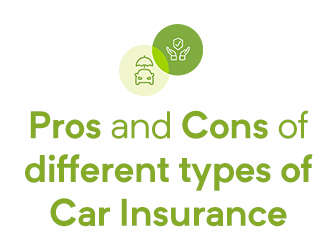
Act of god: This is an act of nature that couldn’t be predicted or prevented, such as floods and hail.
Claim: The application to an insurer to cover the cost of the damage covered by their policy, after an accident or theft.
Claims history: When deciding on what your insurance premium will be, insurance companies will look at your claims history, which is the number of claims you’ve made in the past, and what you’ve claimed for.
Comprehensive insurance: Comprehensive Car Insurance is the most extensive option available and covers your vehicle in the event of accidental damage, theft and hijacking. It also covers your car for damage caused by weather conditions such as storms and floods. Comprehensive insurance also covers you if you are responsible for an accident and need to pay for the repair of damages to the other car.
Depreciation: This is the deduction for wear and tear of your car.
Excess: A Car Insurance excess is the uninsured part of your loss that is payable by you when you make an insurance claim. This excess must be paid regardless of the circumstances surrounding the accident. The insurance company uses this claim to dissuade fraudulent or suspicious insurance claims and also to lower premium payments.
Extended Warranty: An Extended Warranty takes over when the manufacturer’s warranty ends, and covers the costs if there’s a mechanical breakdown or electrical breakdown, so you don’t have to pay for them from your pocket.
Fault claim: This is the claim in which the insurer cannot recover costs from someone else, and where you are considered to have caused the accident or loss, even if it’s not your fault, such as theft.
Insured value: This is the total amount the insurance company will pay out if the total amount the insurance company will payout for your car if it’s damaged beyond repair. This will either be the amount you stated the vehicle was worth when taking out the policy or the current market value at the time of the claim – whichever is lower.
Maintenance Plan: A Maintenance Plan includes a warranty against mechanical failures, as well as wear and tear on items such as shock absorbers, brake pads and wiper blades.
Like with a service plan, a Maintenance Plan also lasts for a few years or a set number of kilometres.
Non-fault claim: This is a claim in which the insurer can recover the costs from someone else.
Premium: The cost of your Car Insurance, either monthly or annually.
Pro-rata premium: This is a premium based on the few days that fall within the month before the premium starts.
Service Plan: A Service Plan covers you for the labour and standard parts of your car’s service. It doesn’t include wear and tears on parts such as the clutch, shock absorbers, headlight globes and brake pads. Service Plans start when you buy your car, and continue for a set number of years or kilometres. Generally, the lengths are three years and 100 000 kilometres.
Third-party insurance: This kind of insurance will only cover the damage caused to another person’s car (who is the third party) in the event of an accident, as well as the costs associated with injuries or death of the third party in the accident. Your own vehicle is not covered in the event of accidental damage, theft and hijacking.
Underwriting: This is the process that the insurance company undertakes to determine how risky you are, based on things like your age, accident history, credit and location. This information will be used to calculate your premiums.

Choosing the right Car Insurance for your needs and your budget is one of the most important decisions you’ll make when it comes to your car. High insurance premiums mean less cash in your pocket every month, but they could also mean more coverage and financial protection if anything goes wrong with your car. If you opt for lower premiums, you might experience financial stress when it comes to claiming for issues with your car.
MotorHappy can help guide you through the process, and find something that’s right for your car – and your pocket. For a free quote and help in comparing quotes, click here.
Suzuki Ignis: Small car, big heart
Our top 7 tips for buying a new car


